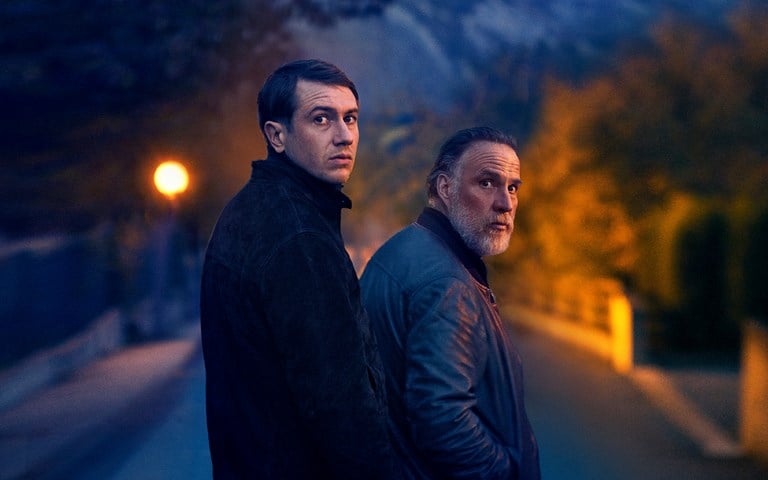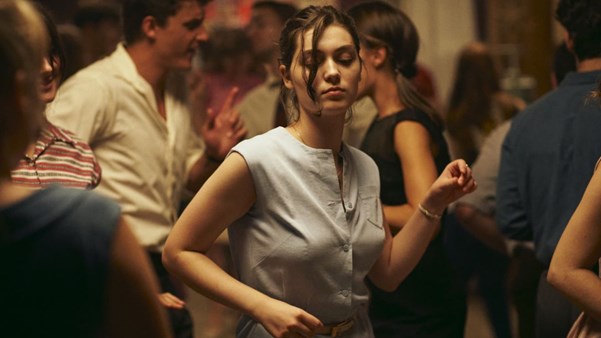Devoid of the genre’s usual sensationalism, Dominik Moll’s chilling police procedural interrogates the systems that foster violence against women. By Yasmin Omar

This article contains discussion of violence against women that some readers may find distressing.
It’s a fear all women carry, a fear that rests dormant during the day and emerges when we’re walking home alone at night. Maybe today’s the day I’ll be murdered. The statistics tell us as much. 110 women were killed by men in the UK in 2020, 52% of whom met their death at the hands of current or former partners. Misogyny is so ingrained, so rampant, that the name Sarah Everard has become shorthand for the ferocious consequences of male violence. Reflecting this social ill is Dominik Moll’s hardboiled French crime drama The Night of the 12th, in which an all-male investigation team is tasked with tracking down the person who burned 21-year-old Clara (Lula Cotton-Frapier) alive.
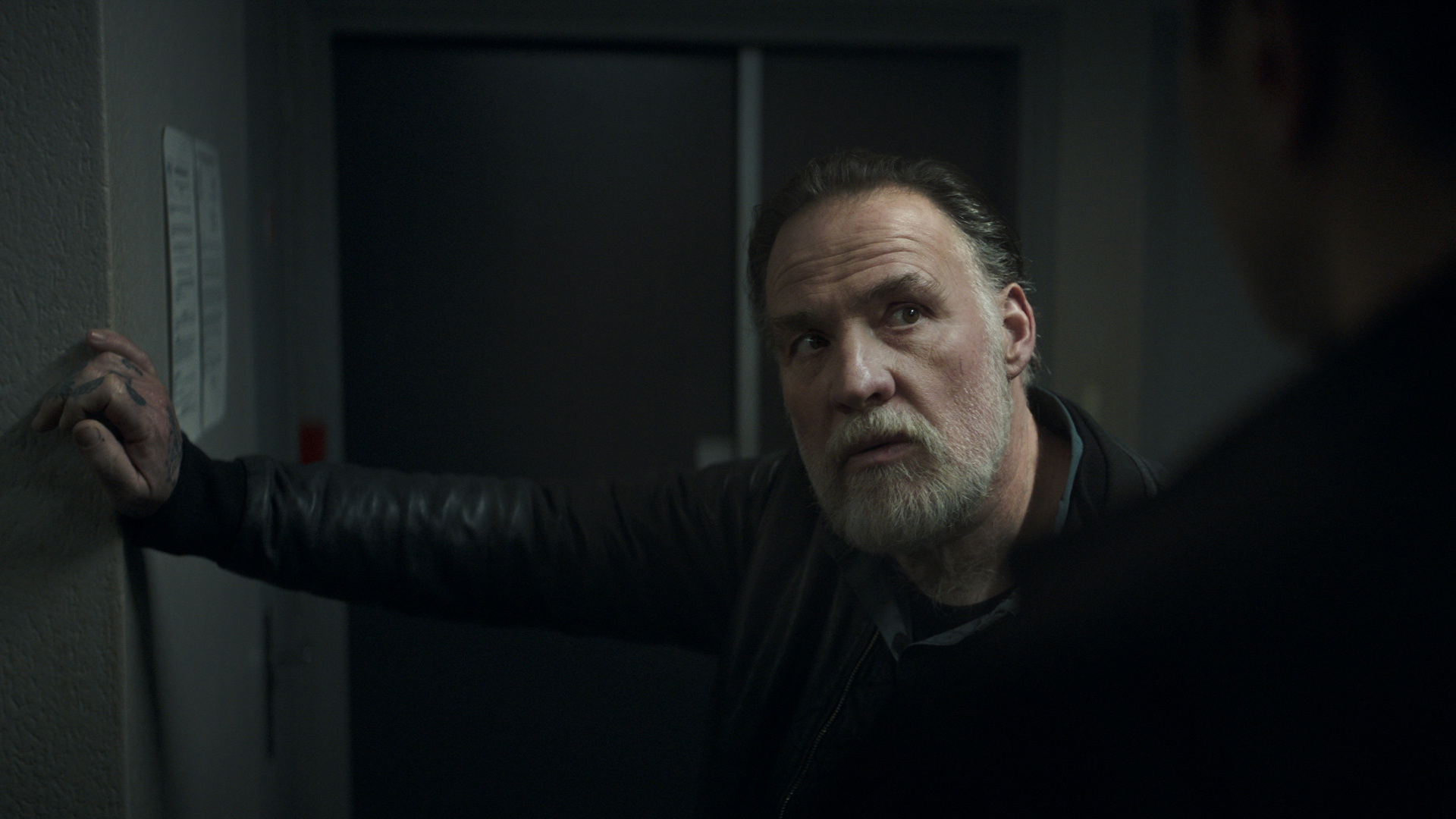
In many ways, the film is not your typical police procedural. It ambles along at a leisurely pace without any particular sense of urgency – there is no antsy, tick-tocking score whisking you from scene to scene – and, despite being based on a real-life story, its tone is much bleaker than the sordid sensationalism that spices up most true crime. The starting point of The Night of the 12th, though, borrows from a tale as old as time. A woman – usually beautiful, young and blonde, like Clara – is killed and a man grows emotionally from the experience. The trope is pervasive enough in contemporary storytelling that it even has its own zippy term: fridging. It is disappointing that this critically acclaimed, six-time César winner, which seems invested in unpacking gender trouble, feeds into the very system it’s critiquing. (The movie’s ghoulish framing of Clara’s murder, slipping into slow-motion as flames lap her skin then gawping at her charred remains, also undermines its apparent mission statement.)
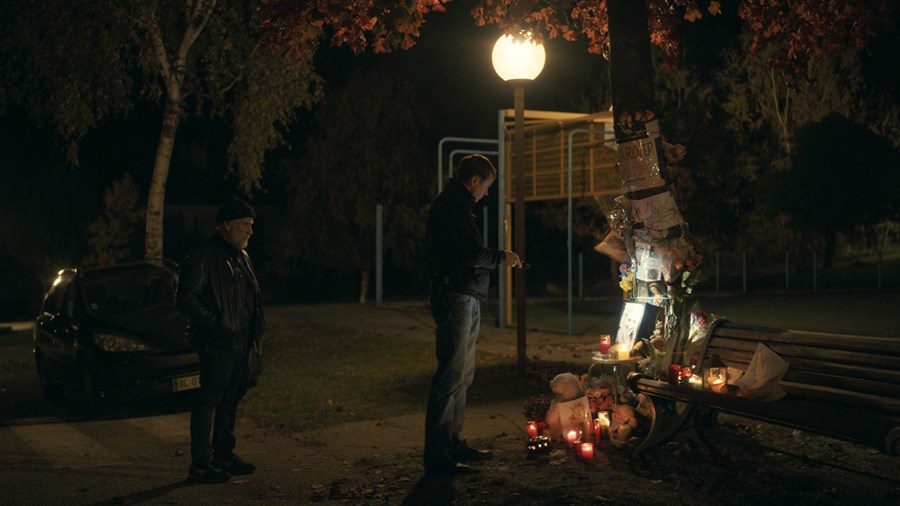
The Night of the 12th (2022)
If you can get over the fact that a pretty woman’s death serves as its narrative catalyst, the film offers plenty of insight into masculinity: the anger, the posturing, the coarseness. The 24 white guys who work for the Grenoble police department are desensitised to violence and disinterested in femicide cases; they’re simply puzzles to be solved, discussed with unruffled calm. There’s more outrage over the office’s malfunctioning printer than the loss of human life. The cops feel no need to swallow their sexism in the testosterone palace that is the Saint-Jean-de-Maurienne station, and reveal their bare-faced contempt for women when flinging around all manner of slurs, digs and insults. Interestingly, the two officers assigned to Clara’s case, Bouli Lanners’ Marceau and Bastien Bouillon’s Yohan, reverse the classic seasoned pro-young rookie dynamic. The more experienced Marceau, reeling from his wife’s infidelity, is enlightened, evolved and in touch with his emotions, while his thirtysomething partner is closed-off, restrained.
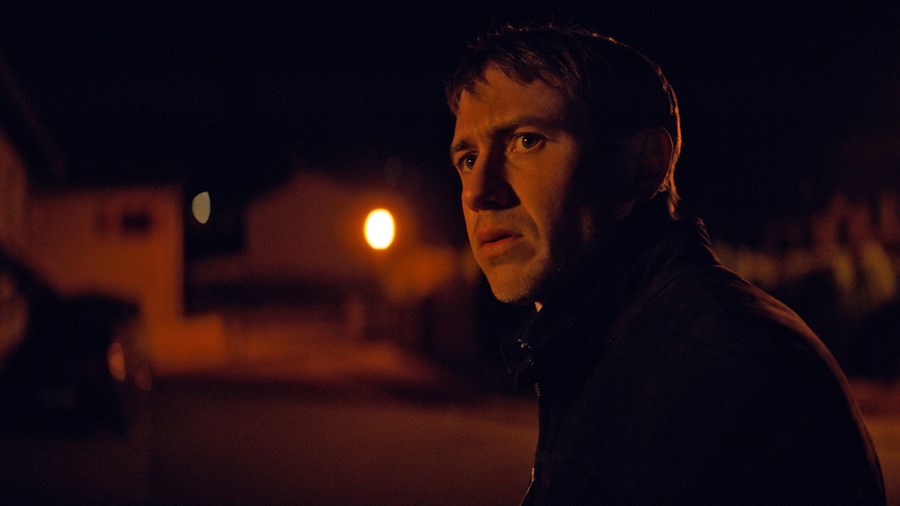
The Night of the 12th (2022)
What do straight men talk about when they’re alone? Judging by The Night of the 12th, it certainly isn’t their feelings. Again and again, a deflated Marceau opens up to Yohan – about his relationship problems, his failed dreams, his concerns for the future – who shuts him down with offers of sleeping pills or suggestions to visit the in-house psychiatrist. Yohan’s unrelenting stoniness makes him a difficult character to play, and yet Bouillon suggests he is carrying a hefty emotional load, even if he never completely unburdens it. The policemen’s sensibilities could not be further apart, therefore it’s revealing that they do align in one respect: violence. That both characters respond with their fists in high-stress situations is telling. The Night of the 12th posits, rather dispiritingly, that men are socialised to punch and hit and maim, regardless of temperament. As Yohan himself says: ‘I believe we can’t find the murderer because all men killed Clara.’
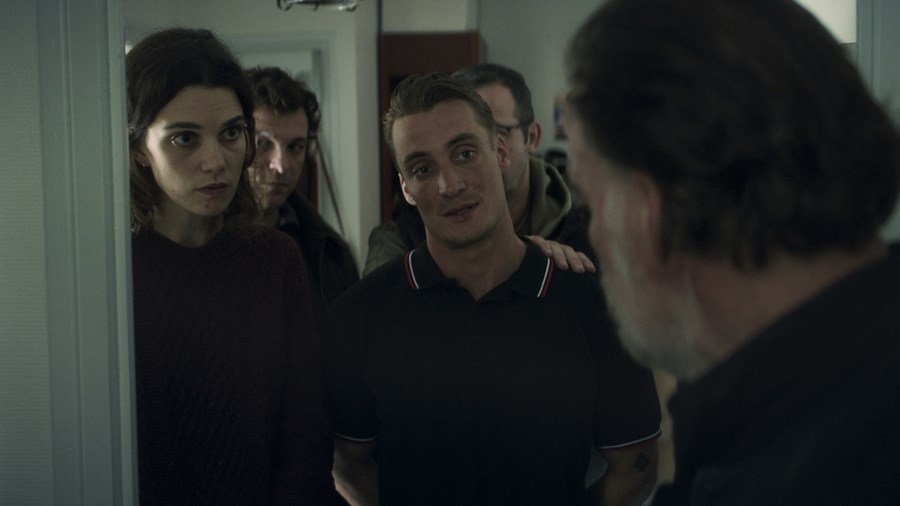
The Night of the 12th (2022)
Hyperbolic as it may seem, this is the impression we’re given during the film’s many riveting interrogation sequences, where her ex-boyfriends insist they’d never do something like that… then provide testimony that convinces you they’re the culprit. There’s the defensive Wesley (Baptiste Perais), arms folded as he bad-mouths the deceased. Jules (Jules Porier), who cracks up laughing when the cops tell him she was burnt alive. Gabi (Nathanaël Beausivoir), rapping a blood-curdling song warning Clara ‘I’ll torch you, scorch you, burn you to ashes’. And the unnervingly relaxed Vincent (Pierre Lottin), smirking as he’s put into handcuffs. It is a tribute to these performers that they make each suspect a viable one with minimal screen time. What’s so chilling is that they are, on the face of it, normal guys. Killers are not always hooded figures in dark alleyways. More often than not, they’re the men closest to you.
There is little resolution in The Night of the 12th. Some officers join the team, others leave, the police common room gets a new sofa. Life goes on. Clara’s murderer, as we’re told at the very beginning, remains at large. It’s more authentic this way – and more upsetting. Lapses in filmmaking judgement aside, this potent movie holds a mirror up to our culture of misogyny. You won’t like what you see.
WATCH THE NIGHT OF THE 12TH IN CINEMAS
